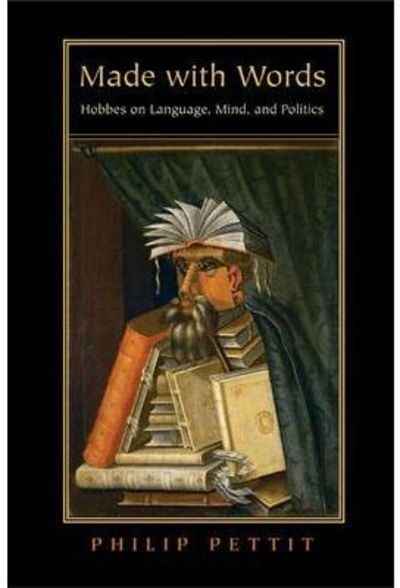Made with Words : Hobbes on Language, Mind, and Politics

Editorial Princeton
Fecha de edición julio 2009 · Edición nº 1
Idioma inglés
EAN 9780691143255
192 páginas
Libro
encuadernado en tapa blanda
Resumen del libro
Hobbes's extreme political views have commanded so much attention that they have eclipsed his work on language and mind, and on reasoning, personhood, and group formation. But this work is of immense interest in itself, as Philip Pettit shows in Made with Words, and it critically shapes Hobbes's political philosophy. Pettit argues that it was Hobbes, not later thinkers like Rousseau, who invented the invention of language thesis--the idea that language is a cultural innovation that transformed the human mind.
The invention, in Hobbes's story, is a double-edged sword. It enables human beings to reason, commit themselves as persons, and incorporate in groups. But it also allows them to agonize about the future and about their standing relative to one another; it takes them out of the Eden of animal silence and into a life of inescapable conflict--the state of nature.
Still, if language leads into this wasteland, according to Hobbes, it can also lead out. It can enable people to establish a commonwealth where the words of law and morality have a common, enforceable sense, and where people can invoke the sanctions of an absolute sovereign to give their words to one another in credible commitment and contract. Written by one of today's leading philosophers, Made with Words is both an original reinterpretation and a clear and lively introduction to Hobbes's thought.
Biografía del autor
Catedrático L. S. Rockefeller de Ciencias Políticas y Valores Humanos en la Universidad de Princeton desde 2002, es, además, catedrático distinguido de Filosofía en la Universidad Nacional de Australia. Su trabajo ha versado sobre teoría moral y política y sobre cuestiones fundamentales en filosofía de la mente y metafísica. Considerado uno de los más sólidos exponentes del llamado neorrepublicanismo, su teoría se edifica sobre la concepción de la libertad como no-dominación. Entre sus libros cabe mencionar: The Common Mind (1996); Rules, Reasons and Norms (2002); Made with Words: Hobbes on Language, Mind and Politics (2008); Just Freedom: A Moral Compass for a Complex World (2014), y, en castellano, Republicanismo. Una teoría sobre la libertad y el gobierno (1999); Una teoría de la libertad (2006), y Examen a Zapatero (2007). Una colección de artículos sobre su obra, Common Minds: Themes from the Philosophy of Philip Pettit , apareció en 2007.








